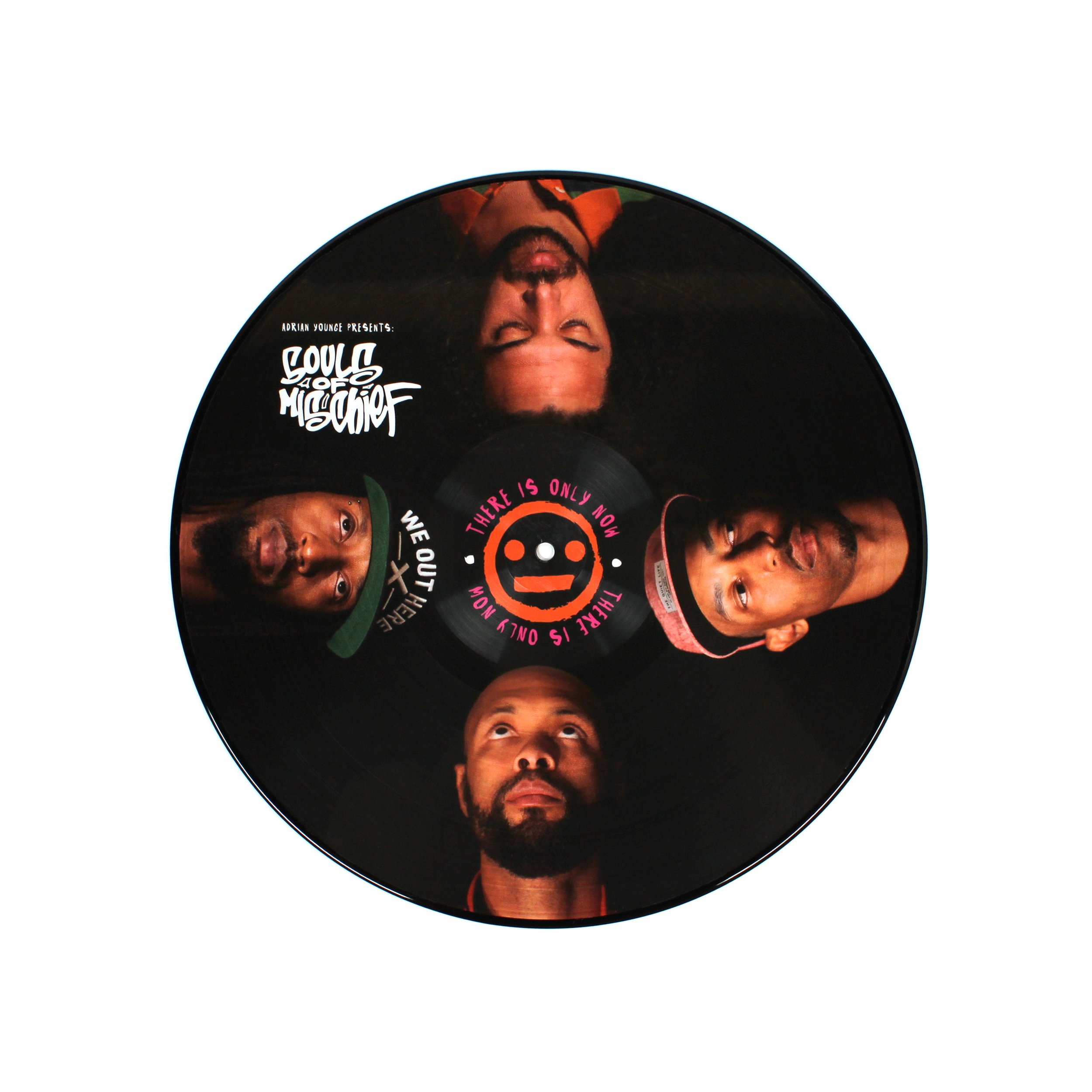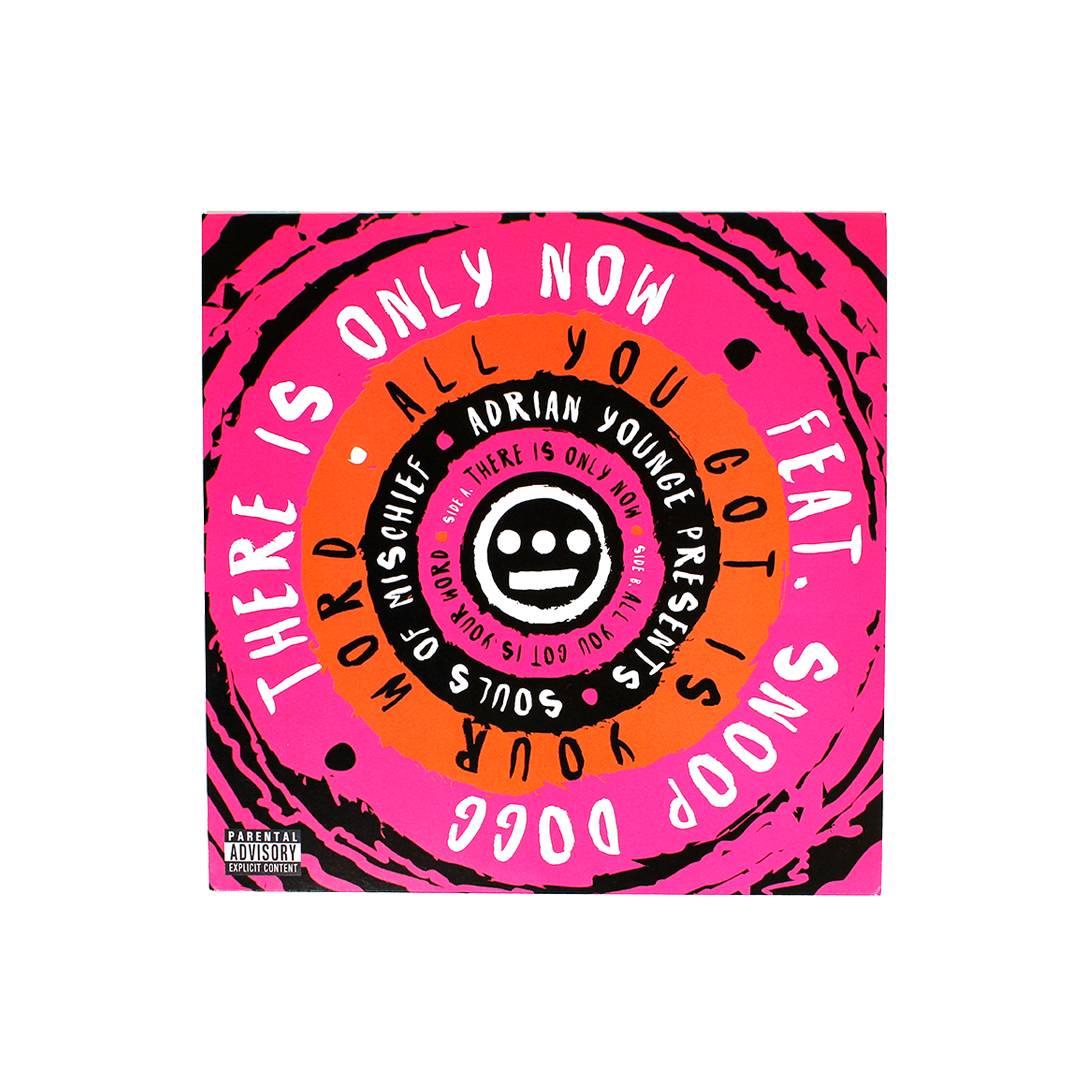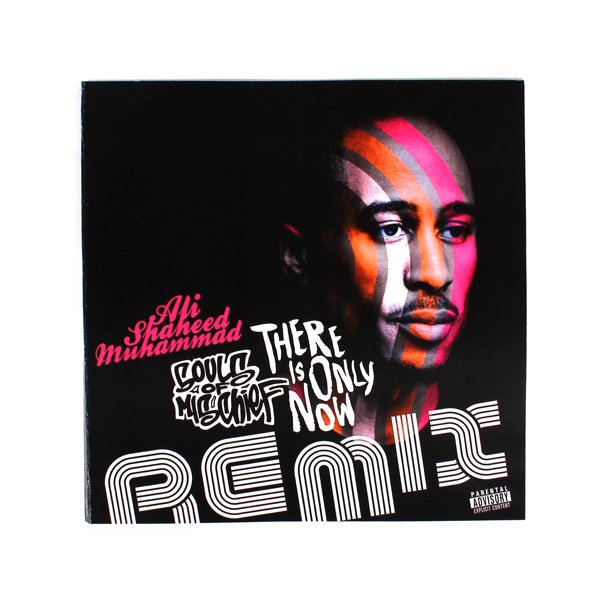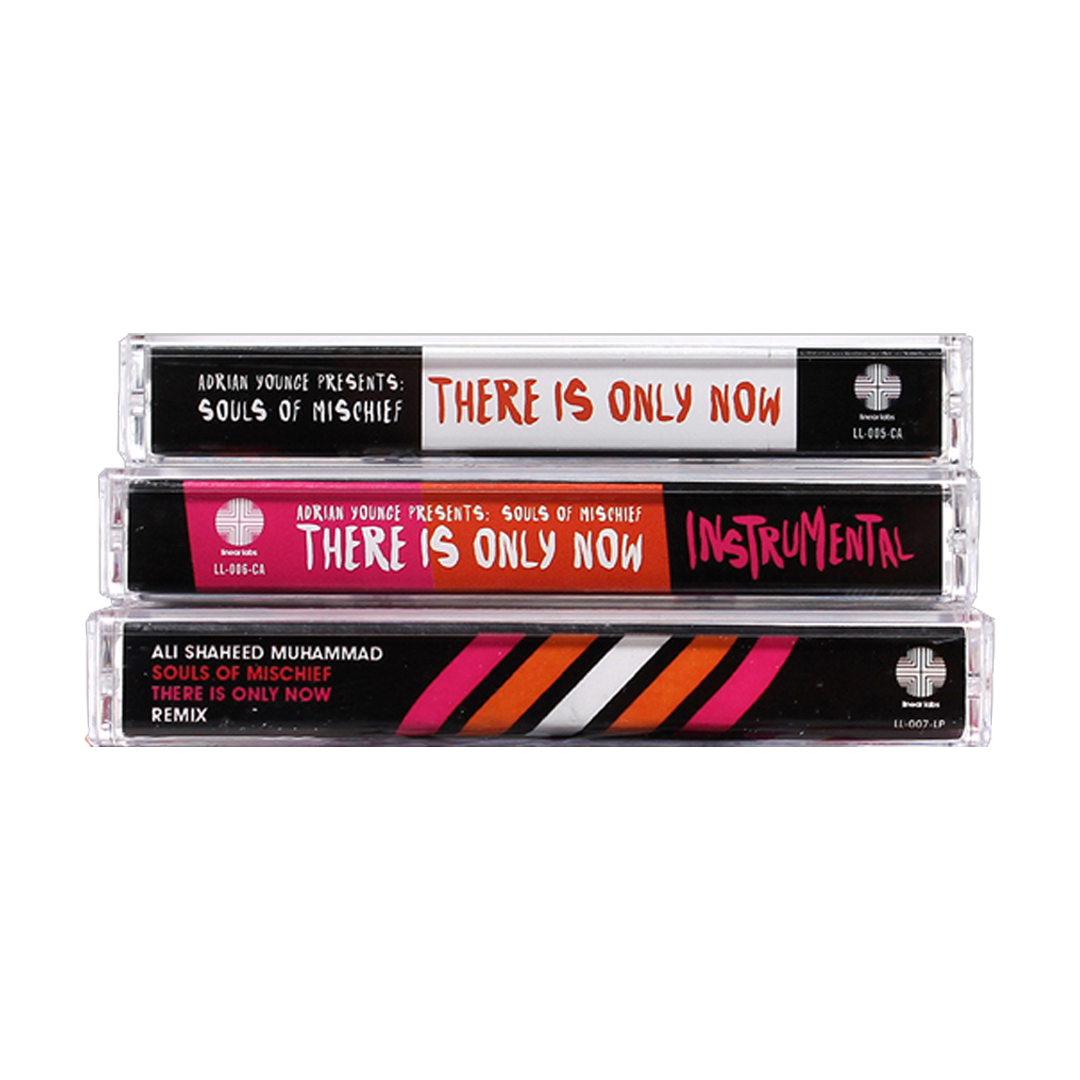
There Is Only Now, the sixth album from legendary hip-hop group Souls of Mischief, is a cinematic crime tale of love, loss, and revenge. A conceptual collaboration with producer Adrian Younge, the album serves as a bookend to two decades of music since the release of the group’s seminal debut album, ‘93 Til Infinity.
Set in 1994, There Is Only Now draws its inspiration from a near-fatal shooting involving group members A+, Opio, Tajai, and Phesto as they were reaching new levels of success early in their careers. Struggling with the volatile combination of newfound fame and the proliferation of gun violence in their native Oakland, the crew parlays the energy from the incident to weave a new tale altogether. As complex as the arrangements and rhymes, the narrative that unfolds is one of unrequited love that spins into lives of the Souls crew. After Tajai is kidnapped, we’re led through a labyrinth of anecdotes and insights into the love triangle of Womack, the thugged out villain; Stoney, herb on the come up; and Miriam, the object of their affections.
There Is Only Now sees the Souls of Mischief crew trading bars with a cast of classic hip-hop and soul luminaries. Narrated by A Tribe Called Quest member Ali Shaheed Muhammad, the album reveals itself under his watchful eye as DJ for fictional local Oakland radio station K-NOW. Busta Rhymes makes an appearance as the story’s villain, Womack, on “Womack’s Lament,” while William Hart of the legendary vocal soul group, The Delfonics, lends his buttery falsetto to the contemplative “Another Side of You.” Snoop Dogg drops knowledge on the situation between Stoney and Womack with an ice cold verse on the title track “There Is Only Now,” and Scarub from Living Legends goes in on “Stone Cold.”
From the Black Jazz stylings of “Ghetto Superhero” to the hectic JB’s-influenced “Green Eyed Monster,” the album showcases Souls of Mischief’s classic flows refreshed over Younge’s trademark sound. Swirling organs, heavy drums, and soaring strings provide a lush backdrop for the Souls crew to trade rhymes like jazz soloists. Younge elaborates, “I wanted to make an album that was like Native Tongues meets Souls of Mischief meets Herbie Hancock and Bob James. I wanted them to be like four horns, so each person is a separate horn player in, for lack of a better term, this hip-hop jazz production.”
Fortunate enough to work with his favorite hip-hop group of all time, Younge jumped at the opportunity to create a truly collaborative project that found everyone together in his Los Angeles studio. Drawing on their strength as a quartet, Souls of Mischief circumvent traditional rap song structure and find their inspiration in the unlikely source of sixties soul harmony groups. Marveling at Younge’s unique approach to the production, the emcees felt obliged to step up their game on the lyrical end.
Souls of Mischief and Adrian Younge have created a hip-hop album unlike any other. The result of a special moment for all involved, both parties feel the album represents the best work of their careers. There Is Only Now proves that after two decades in the rap game, hip-hop’s Fab Four remains committed to the expansion of their legacy as pioneers and innovators of hip-hop.











